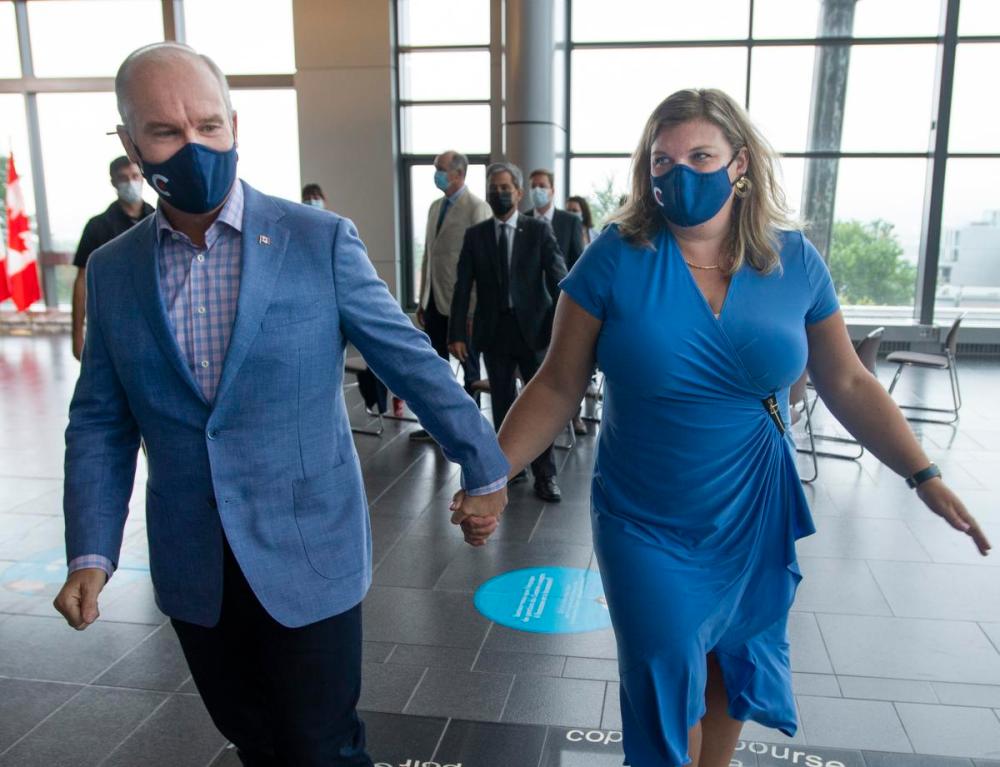Liberals drop three points, fall to near tie with Conservatives in public support, Signal analysis says
Advertisement
Read this article for free:
or
Already have an account? Log in here »
To continue reading, please subscribe:
Monthly Digital Subscription
$0 for the first 4 weeks*
- Enjoy unlimited reading on winnipegfreepress.com
- Read the E-Edition, our digital replica newspaper
- Access News Break, our award-winning app
- Play interactive puzzles
*No charge for 4 weeks then price increases to the regular rate of $19.00 plus GST every four weeks. Offer available to new and qualified returning subscribers only. Cancel any time.
Monthly Digital Subscription
$4.75/week*
- Enjoy unlimited reading on winnipegfreepress.com
- Read the E-Edition, our digital replica newspaper
- Access News Break, our award-winning app
- Play interactive puzzles
*Billed as $19 plus GST every four weeks. Cancel any time.
To continue reading, please subscribe:
Add Free Press access to your Brandon Sun subscription for only an additional
$1 for the first 4 weeks*
*Your next subscription payment will increase by $1.00 and you will be charged $16.99 plus GST for four weeks. After four weeks, your payment will increase to $23.99 plus GST every four weeks.
Read unlimited articles for free today:
or
Already have an account? Log in here »
Hey there, time traveller!
This article was published 18/08/2021 (1576 days ago), so information in it may no longer be current.
OTTAWA — The gulf in public support between the Liberals and Conservatives has narrowed considerably, putting Justin Trudeau’s gamble to regain a majority government in jeopardy, a new analysis of publicly available polling by Vox Pop Labs suggests.
The Liberals currently sit at 33.4 per cent support, while the Conservatives would garner 32.1 per cent of the vote if an election was held today, according to aggregate analysis by The Signal, Vox Pop Labs’ election forecast conducted for the Star.
The New Democrats command 20.1 per cent of voter support, with the Green party registering 5.8 per cent.

The forecast is generated by a model that takes a poll of polls going back to 2009, and analyzes how their predictions compared with the actual election results.
The model also takes into account each political polling firm’s “house bias,” and accounts for it in the projections.
“We’re at the outset of a campaign and the general sense is that Canadians are not thrilled about an election being called at this point in time,” said Clifton van der Linden, the founder and CEO of Vox Pop Labs.
“My inclination would be that there is some sort of punitive effect for the decision to call an election at this point in time, (but) that effect may not last.”
The Grits still maintain a lead in Ontario, with 36 per cent support to the Conservatives’ 32.9 per cent. But Vox Pop’s analysis suggests Conservative Leader Erin O’Toole is faring better in Canada’s most populous — and electorally important — province than public polling has suggested.
Based on that analysis, the Liberals are currently projected to win 62 seats in Ontario compared to 39 for the Conservatives and 20 for the New Democrats.
British Columbia, another important political battleground, is a virtual tie among the major three parties — with the Liberals at 31.1 per cent support, the Conservatives at 30.1 per cent, and the New Democrats at 28.4 per cent. The Greens, who are hoping to keep their toehold in Parliament after months of internal turmoil, registered 8.7 per cent support.
Canada’s 44th general election campaign is without precedent, taking place against the backdrop of a global pandemic that is now entering its fourth wave in some Canadian communities. The campaign has seen uneven starts for the leaders of the major federal parties, with questions about child care, mandatory COVID-19 vaccinations and the crisis in Afghanistan dominating the early discourse.
NDP Leader Jagmeet Singh headed into the campaign with a higher approval rating than those of his rivals. New Democrat strategists told the Star’s Alex Ballingall they believe they’re poised to retake seats lost in the 2019 election.
O’Toole got off to a shaky start over questions about his stance on mandatory COVID-19 vaccinations, but the campaign is now projecting confidence that was further buoyed by a Progressive Conservative victory in Nova Scotia’s provincial election on Tuesday. While Nova Scotia PC Leader Tim Houston has distanced himself from the federal party, several of the Conservatives’ most senior staff hail from the province and follow the province’s politics closely.
Liberal Leader Justin Trudeau has started the campaign with a focus on the issue of mandatory COVID-19 vaccinations, which suggests his party expected that to be a significant wedge issue in the campaign
“Liberal voters in general are very in favour of it, so I’m curious about this dip in vote share,” said van der Linden, who is also a professor of political science at McMaster University.
“I don’t see, in general, these policy proposals as measures that might disenfranchise Liberal voters, so I’m not immediately convinced that that’s the (cause).”
Van der Linden also predicted that the Nova Scotia election — in which the Progressive Conservatives upset the incumbent Liberals — will have Trudeau’s campaign worried.
“I’m sure that outcome is concerning for the Liberals and I’m sure that pollsters are going to be paying close attention,” he said.
Alex Boutilier is an Ottawa-based reporter covering federal politics for the Star. Follow him on Twitter: @alexboutilier

















